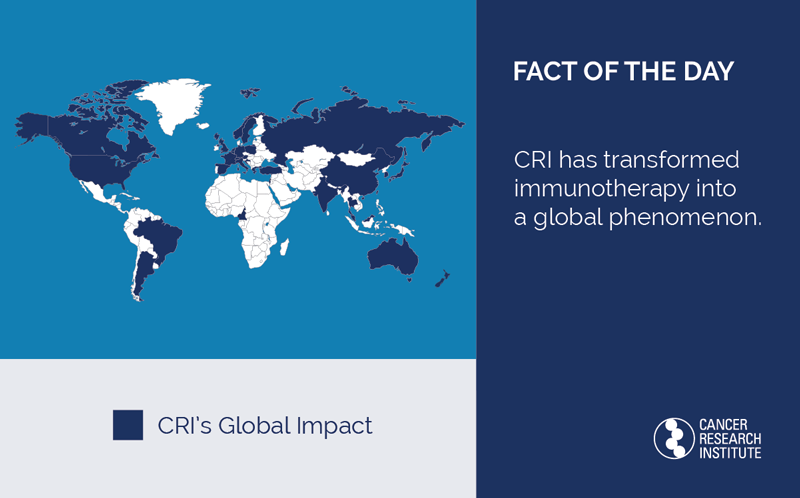
CRI has transformed immunotherapy into a global phenomenon.
In 1953, thanks to a $2,000 grant from Nelson Rockefeller, the Cancer Research Institute (CRI) was founded by Dr. William B. Coley's daughter, Helen, with the goal of better understanding how a bacterial treatment her father created—the first-ever cancer immunotherapy—could be used to save the lives of more people. Theorizing that the treatment likely worked in some patients by stimulating an immune response against cancer, CRI turned its focus to basic immunology to build a foundation of knowledge that would one day make possible effective immunotherapies for more patients.
The return on that investment in CRI has been immense. Since then, CRI has funded more than $344 million in immunotherapy research and supported more than 3,000 scientists, who have made crucial discoveries and helped advance immunotherapy efforts in countries across the world (pictured). More importantly, the immunotherapies that CRI scientists helped develop have saved the lives of many patients—both young and old—with previously untreatable cancer, enabling them to enjoy more years of their lives.
While the range of patients benefiting from immunotherapy continues to grow, it doesn't work for everyone yet. But some of the best scientific minds in the world are committed to changing that. Globally, there are thousands of immunotherapy clinical trials ongoing for nearly all types of patients and all types of cancer, and the progress that’s being made (which we’ve highlighted in our 30 Immunotherapy Facts of the Day) should give us all reason to believe in the possibility of a Future Immune to Cancer.
Image credit: Cancer Research Institute